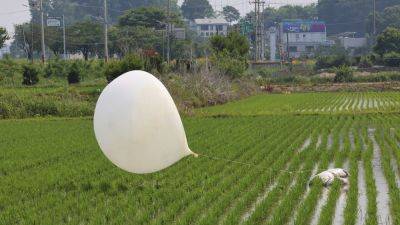Water shortages are likely brewing future wars — with several flashpoints across the globe
The diminishing availability of water resources across the globe should be considered one of the most pressing environmental security challenges of the century.
That's the view of one military geography and environmental security specialist, who recently published a study examining the relationship between water scarcity, geopolitics and the potential for violent conflict in a warming world.
Francis Galgano, an associate professor at the department of geography and the environment at Villanova University in Pennsylvania, said poor governance in acutely vulnerable areas — especially in transboundary river basins — and the deepening climate crisis were two major concerns.
"You've got this governance problem and you've got this growing effect of aridity and climate change. I think that is the fundamental thing that's destabilizing our ability to [resolve water conflicts] peacefully and effectively," Galgano told CNBC via videoconference.
"I really hope that I'm wrong," he added. "But this is my position and certainly the data seems to bear this out."
The prospect of water wars is a long-running and active debate, with everyone from high-ranking U.N. officials to renowned hydro-politics experts voicing their concern about the perceived risks.
Others, however, are more skeptical. The Stockholm International Water Institute (SIWI), a non-profit with expertise in water governance, has said that even amid a possible rise in social conflicts and violence, "water can be a bridge to peaceful negotiations rather than a trigger or weapon of war."
The sustainability of water has become an increasingly urgent global challenge. It is estimated that half of the world's population already faces severe water scarcity during at least part of the







